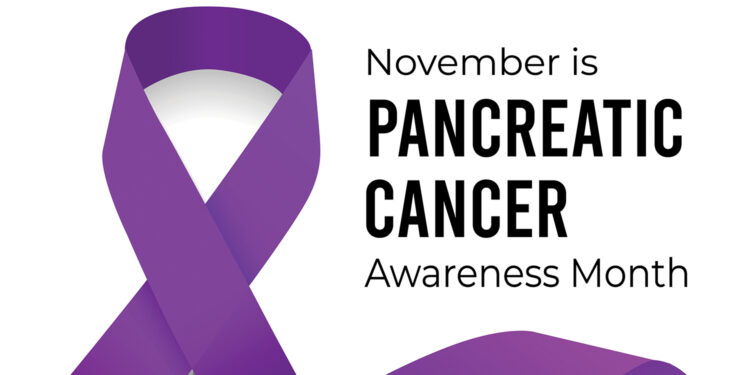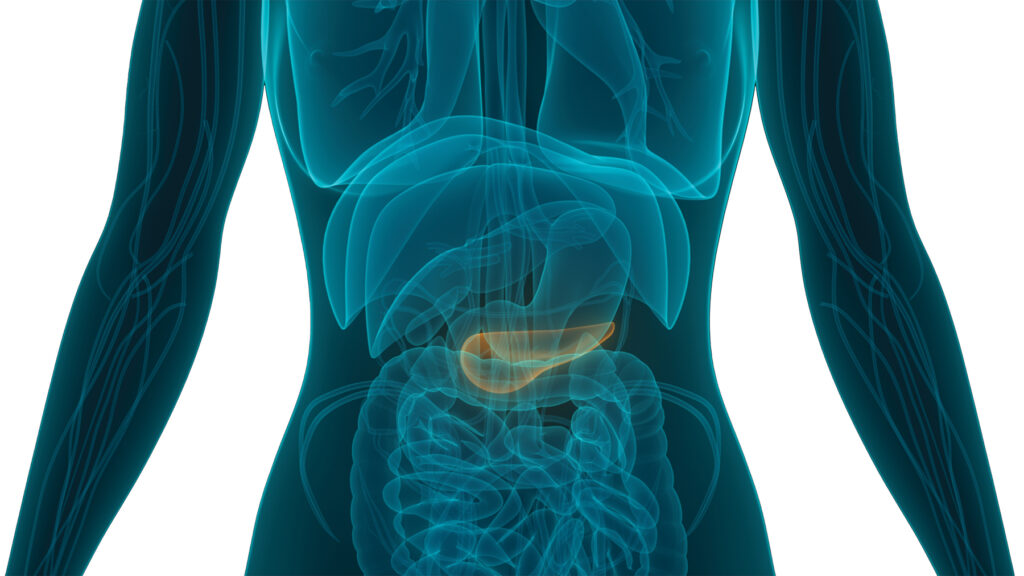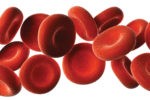November is Pancreatic Cancer Awareness Month

Story by Pancreatic Cancer Action Network
Hope For What ‘s Next
Pancreatic cancer continues to be the third-leading cause of cancer-related death in the United States and is on track to become the second-leading cause before 2030. It is one of the most aggressive and hard-to-treat cancers, with a five-year survival rate of only 13%, and it’s the only major cancer with a five-year survival rate below 20%.
The pancreas is a gland located deep in the abdomen, between the stomach and the spine. It makes enzymes that help digestion and hormones that control blood-sugar levels. Pancreatic cancer begins when abnormal cells in the pancreas grow and divide out of control and form a tumor.
Early detection of pancreatic cancer is difficult as there is still no standard test to find pancreatic cancer early. Often diagnosed at a late stage, pancreatic cancer poses a challenge in treatment. However, advancements in biomarker testing via blood tests or liquid biopsies, improved imaging techniques and artificial intelligence are generating some hope for their potential to detect pancreatic cancer early and save lives.
Imaging tests can be used in combination to visualize a mass or tumor that may be present on the pancreas. Some of these tests include endoscopic ultrasound (EUS), computed tomography (CT), positron emission tomography (PET) scan, magnetic resonance imaging (MRI), and endoscopic retrograde cholangiopancreatography (ERCP).
Precision medicine is an innovative approach to cancer treatment based on a person’s individual biology. Instead of using a one-size-fits-all method, precision medicine looks to provide the right treatment based on the patient’s needs, targeting the cancer while minimizing harm to healthy cells. Potential precision medicine treatments can be identified through genetic testing for inherited mutations and tumor biomarker testing.
The Pancreatic Cancer Action Network (PanCAN) supports guideline recommendations for all patients to undergo genetic testing for inherited mutations at diagnosis and for patients to undergo biomarker testing of their tumor tissue unless clinically contraindicated. Biomarker testing of tumor tissue reveals the tumor’s biology, such as
genes and proteins within the tumor. Genetic testing for inherited mutations shows mutations a person is born with. This information about molecular alterations can help oncologists identify precision medicine treatments which can include targeted therapies, immunotherapies, chemotherapies and more.
Today, it is more common for pancreatic cancer patients to get treatment based on their tumor’s biology or their genetic makeup. PanCAN’s Know Your Tumor® service provides patients with information about their tumor’s biology through free tissue biomarker testing and genetic testing for inherited mutations.
“PanCAN’s Patient Services is here to provide patients and their families with information and resources, free of charge,” said Chief Scientific and Medical Officer, Anna Berkenblit, MD, MMSc. “Resources include a list of doctors who specialize in diagnosing and treating pancreatic cancer, a personalized clinical trials search, access to Know Your Tumor precision medicine service, and more.”
What’s Next: Researchers are studying how to use artificial intelligence (AI) and machine learning in tandem with current imaging techniques to improve how we detect pancreatic cancer. Since it can be difficult for radiologists to differentiate non-cancerous lesions or cysts from pancreatic cancer, the goal is to figure out how to use these new technologies along with imaging to better pinpoint pancreatic cancer at its earliest stages.

Risk Factors:
Certain risk factors may increase the likelihood of getting pancreatic cancer, like family history, race (ethnicity), smoking, diabetes, obesity, age and others. Learn more about pancreatic cancer risk factors and take the pancreatic cancer risk test.
Symptoms:
Pancreatic cancer may cause only vague symptoms that could be confused with many other abdominal or gastrointestinal issues. It’s important to listen to your body and talk to your doctor about pancreatic cancer if you experience any of the following warning signs.
- Pain, usually in the abdomen or back
- Weight loss
- Jaundice (yellowing of the skin, eyes or both) with or without itching
- Loss of appetite
- Nausea
- Changes in stool
- Recent-onset diabetes
 If you are experiencing one or more of these symptoms, speak to your doctor immediately and reference pancreatic cancer.
If you are experiencing one or more of these symptoms, speak to your doctor immediately and reference pancreatic cancer.
For free, in-depth and personalized resources and information on pancreatic cancer, visit pancan.org, or call PanCAN Patient Services at (877) 272-6226.





